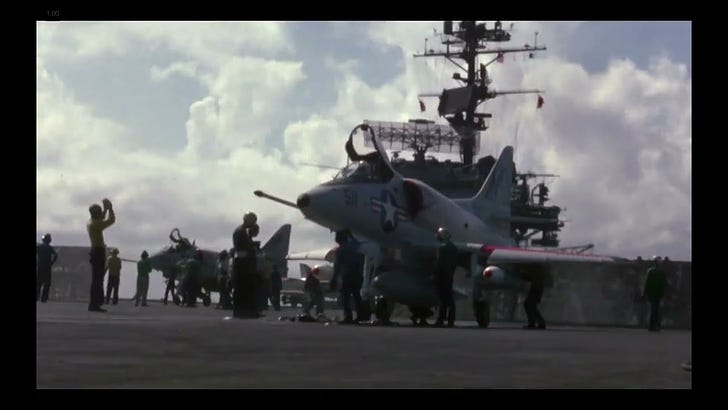7 lessons from Vietnam to Ukraine: political decision-making highlighted in Ken Burns’s 18-hour documentary
In early February, I was struck by this clip with Niall Ferguson, likening Ukraine to Vietnam.
(Clip for 2 minutes)
The kind of enthusiasm for Ukraine... has had a certain ‘strategic naivety’.
Nobody has the faintest idea how to stop this war.
…The worst of all possible strategic outcomes. The decision to escalate in Vietnam is probably the worst strategic decision the United States has made in its history. But what’s amazing to me are the ways in which this could have similar disastrous consequences – and it’s very hard to get anybody to talk about that.
Of course, there are notable differences between Vietnam and today’s Ukraine conflict. The U.S. had a huge number of its own troops on the ground in Vietnam (at one point exceeding 500,000), and there was never really fear of retaliatory tactical nuclear weapons.
But not knowing nearly enough about the Vietnam War, I decided to watch Ken Burns’s 18-hour documentary series on it.
Niall would doubtless have a different take on many things to Ken Burns. (We’ll hopefully be illuminated fully of Niall’s own stance when his second volume on Henry Kissinger shortly gets completed.)
But here I want to share 7 highlights from the documentary – specifically on political decision-making in war time – that I consider thought-provoking in light of the conflict in Ukraine today.
1) Provoked or unprovoked?
Losing touch with reality of what’s provoked, this clip with Lyndon Johnson stood out.
When you lose reality of what’s ‘provoked’ (and deny actions you’ve taken that have been provocative), things get bad very quickly.
‘We still seek no wider war.’
2) Domino theory
The West seems to get dragged into wars largely because of what’s called ‘domino theory’.
3) George Kennan – what would he advise today?
This is a remarkable clip.
Interesting on media censorship then, too – the White House pressuring TV networks not to air the hearings!
4) Pentagon leaks
Here are a few short clips I’ve crudely cut together. The plausible rhyme in history...
5) A presidential candidate sabotaging peace talks to help themselves get elected
In 1968, Nixon sabotaging peace talks between Lyndon Johnson’s government and both sides in Vietnam.
This clip has been struck off YouTube, but you can view the clip on Twitter here. (This might be the most interesting clip of the lot.)
In what ways might U.S. presidential hopefuls try to create back-channels with Zelensky in the run up to the 2024 election?
6) Corruption that stemmed from U.S. military aid
7) Keeping the war going to get re-elected
A political discussion between Kissinger and Nixon on keeping the war going another year or two, to help them get re-elected.
Can one imagine similar conversations being held in the Oval Office today?
*
In closing, I share one further historic clip (not related to the Ken Burns documentary) with Edwin Reischauer, who had been JFK’s ambassador to Japan, with his thoughts on escalation/de-escalation in Vietnam in the 60s.
Another remarkable four-minute clip…
Try to find a solution between escalation and withdrawal.
I do not approve of expanded bombing... We should find ways to de-escalate the war and limit it.
I doubt very much we will get a settlement until after we have gone through the Presidential election process again. Only after that, I suspect, will there be a climate which will make it possible for us then to be clever in negotiations… And at that time if we will understand what our real interests are, and how tremendously flexible we can be in our own interests, on almost any outcome there, perhaps we can get peace at last.




For anyone who wants more on ‘domino theory’, here’s Robert Blackwill (2 mins) talking about domino theory, both in Vietnam and a present-day Taiwan context: https://youtu.be/2Rc6yFv_J3I?t=536
Ernest May: ‘Most such worst-cases dominos never fall.’
This is picked up again briefly at 38:30. ‘Arguments on credibility don’t get very far analytically – though they may help persuade Presidents.’ https://youtu.be/2Rc6yFv_J3I?t=2306
And: ‘American history since WWII is filled with instances in which the U.S. acted – Vietnam being the outstanding case – because of issues of credibility, which turned out, in practice, to be vacant.’
These are very bad grounds from which to escalate conflict. (There’s a line in the documentary from Marine platoon leader Karl Marlantes, ‘Killing people for your own ego’.)